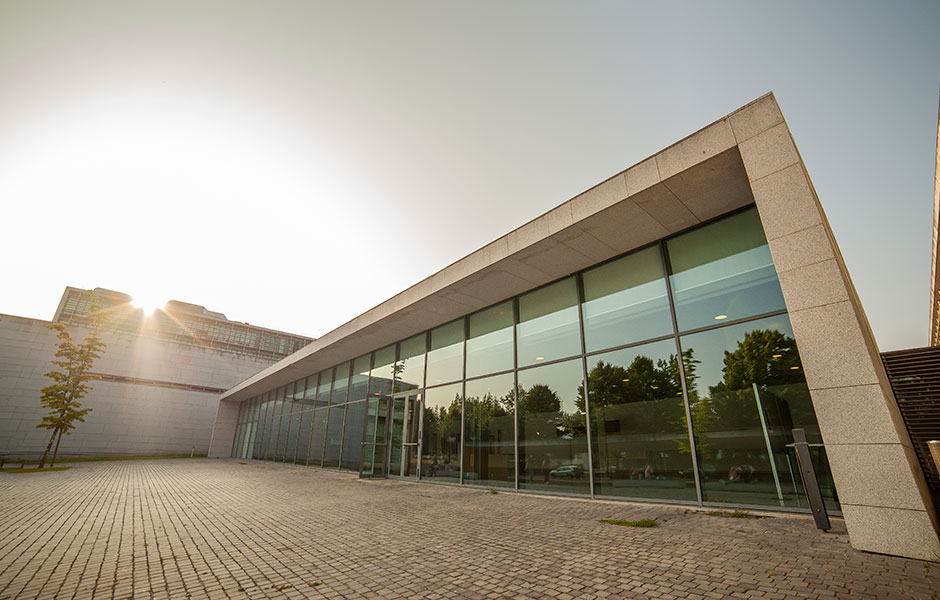RISE-Health is the largest research unit in the country. This is confirmed by the Portuguese Foundation for Science and Technology (FCT), which has just released the list of applications accepted for evaluation in the context of the Multiannual Funding Program for R&D Units 2023/2024.
The document released by the FCT shows that the three largest units are based in Porto. In addition to RISE-Health, which has 637 integrated researchers, the list also includes i3S – Institute for Research and Innovation in Health at the University of Porto (with 415 researchers) and INESC TEC – Institute for Systems and Computer Engineering, Technology and Science (with 358).
The new RISE-Health Research Unit submitted its application on April 17. This document states that “RISE-Health’s main mission is to carry out high-quality, innovative, interdisciplinary clinical and translational research with an impact on the community, in a wide range of clinical areas and scientific fields ranging from cardiovascular sciences to neurosciences and metabolism and clinical pharmacology”.
The aim of the new Unit is to become “an example of the sustainable development of the National Scientific System” by “establishing an (inter)national benchmark, attracting talent and increasing the critical mass of human and material resources, inspiring and promoting scientific collaboration, guiding the mobility of researchers and expanding collective experience geared towards achieving innovative results”.
7 Thematic Lines and 35 Research Groups
To this end, RISE-Health will be organized into 7 different thematic lines (4 vertical lines and 3 horizontal lines). The 4 vertical lines represent specific fields of medicine (TL1: Clinical and Translational Research in Cardiovascular Sciences; TL2: Neurosciences; TL3: Metabolism, Hormones and Inflammation and TL4: Hospital Care and Clinical Outcomes) and the 3 horizontal lines (TL5: Therapeutic Targets and Biomedical Innovation; TL6: Digital Transformation and Data Science and TL7: Prevention and Community Health) reflect different translational research methodologies that cover all medical research topics.
Leading these 7 thematic lines will be some of the most prominent names in science in Portugal in their respective areas, namely Adelino Leite Moreira, Elsa Azevedo, Luís Taborda Barata, Cristina Granja, Paulo Correia de Sá, Luís Azevedo and Elisa Keating.
The 1,349 researchers in this new Research Unit (637 integrated and 712 collaborators) will from now on be distributed across the different lines, which are subdivided into 35 research groups, with the aim of promoting clinical and translational research, digital health and artificial intelligence, biotechnologies and biomedical innovation, community health and nursing research.
Size, scope and impact
The new RISE-Health Research Unit stands out not only for its size and scope – disciplinary and geographical – but also for the impact of the results achieved by the researchers who make it up.
As part of the preparation of the application, it was possible to verify that the body of researchers who are now part of the new Unit has been the basis, in the last 6 years, of around 7,000 indexed publications, totaling more than 100,000 citations (more than 60% in Q1 and Q2 journals). In total, more than €32M has been awarded in competitive tenders to fund scientific projects and more than 1,150 clinical studies have been registered, involving around 30,000 participants.
In terms of training, RISE-Health researchers led 17 doctoral programs, 32 master’s programs and 611 continuing education courses between 2018 and 2023.
RISE-Health researchers also stood out for their impact on society during the period under evaluation. Their work and expert opinions were mentioned in around 10,000 news stories published in national and international media. In the last 6 years, the researchers of this new Unit have also registered 14 spin-offs and 51 patents or other intellectual property titles.
Unprecedented Merger
RISE-Health is the result of the merger of CINTESIS – Center for Health Technology and Services Research, UnIC – Cardiovascular Research and Development Unit, MedInUP – Center for Pharmacological Research and Drug Innovation and CICS-UBI – Center for Health Sciences Research.
Based at FMUP, this new research unit will have management centers in 5 organic units of the U. of Porto. Porto (Abel Salazar Institute of Biomedical Sciences and Faculties of Pharmacy, Dental Medicine, Science and Nutrition), in addition to 11 others, namely at 5 public universities (University of Trás-os-Montes and Alto Douro, Algarve, Aveiro, Beira Interior and Madeira) and 2 private higher education institutions (Fernando Pessoa and Portucalense Universities), 3 Nursing Schools (Porto Nursing School, Santa Maria Higher School of Health and IP Santarém Higher School of Nursing) and the Porto Polytechnic Higher School of Health.
As part of the current evaluation process for the Multiannual Program for Financing R&D Units of the Portuguese Foundation for Science and Technology (FCT), the next stage involves a virtual visit by the evaluators. The timetable can be consulted here.

